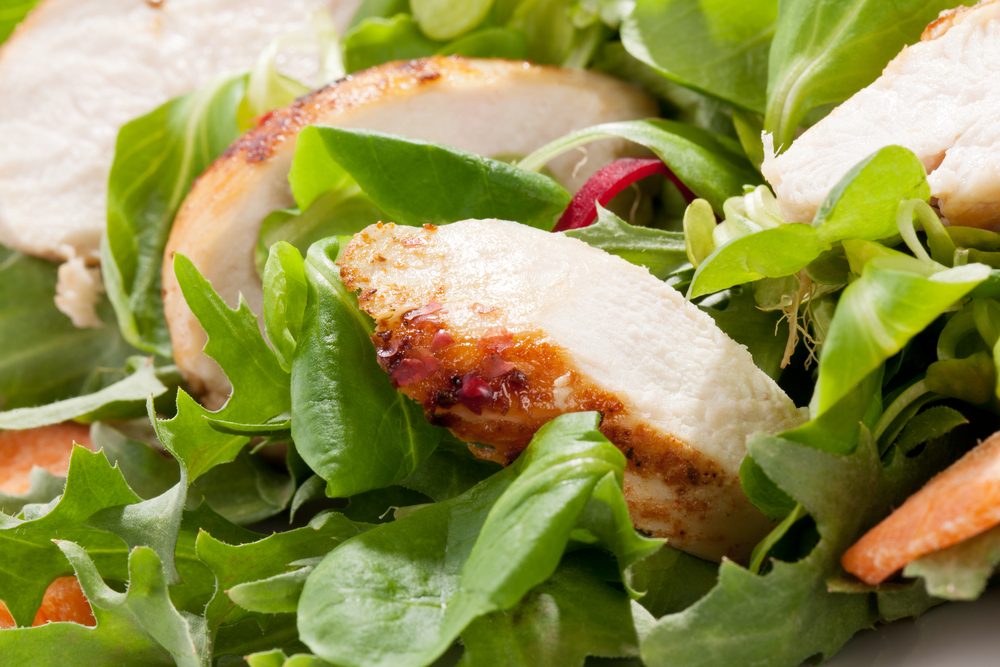Righteous Foodies

On our way to our favorite bowling alley, we briefly stopped to chat with a neighbor-friend. She appeared happy to hear that our family was going bowling, but when I mentioned we were stopping at Wendy’s for an easy dinner, her faced changed to disdain. I mentioned how Wendy’s offers a variety of healthy salads like the Grilled Chicken Berry, or my favorite - the Chicken Apple Pomegranate. I also mentioned that my family likes Wendy’s French fries. I probably could have lied and said that Wendy’s now serves locally grown organic vegetables and grass fed beef – and it most likely wouldn’t have changed her disposition.
As a nutritionist, I understand why some people, like our neighbor, have a negative opinion of fast food.
As we drove away, our neighbor’s response prompted a family discussion about how some people have “food fear” and how that limits their options. We don’t frequent fast food restaurants regularly, but we do use them as pinch hitters. This is especially helpful for those nights when my wife (who does most of the cooking) needs a break, or we’ve got something else going on that trumps the time needed for a home-cooked meal. We also have a culturally diverse household, as one of my daughters, until age 9, grew up in a very poor area in China. If a stray dog, cat, snake, frog or bird ventured into their neighborhood, it likely was being served for supper that evening. Additionally, the entire animal was utilized; bone-marrow soup, sautéed stomach, and fish eyes are a coveted delicacy.
Another daughter, also from China until age 12, had food used as a form of punishment. When in trouble, she would not be allowed to eat, sometimes for a couple of days. In our family, food, or lack thereof, is not used as punishment. We do not demonize any food. We emphasize certain foods as being nourishing, but allow “all” foods. In my profession, I’ve observed that if you overly restrict certain foods, you inadvertently create a desire for those foods – potentially contributing to food insecure problems later in life, such as binge eating the “blacklisted” foods.
In the United States, we have the growing problem of people worrying about getting enough food to eat.
This form of food insecurity amongst seniors has grown by 50 percent between 2007 and 2011. The number of food insecure-seniors (above age 60) has more than doubled between 2001 and 2011 (Academy of Nutrition Professionals 2013).
When I’m consulting with a person relying on the Supplemental Nutrition Assistance Program (SNAP), purchasing organic foods is not within their budget. Fortunately, there are a number of healthful options available, both fresh and frozen. The same budgetary concerns are true for these people when ordering fast food. For less than $4, you can find healthful and affordable choices like Wendy’s chili and a baked potato, or a hamburger and apple slices at McDonalds. And you can always fill your cup with water or unsweetened ice tea instead of soda.
The foodie and green movements have merit, and they’re helping many people take control of their health. But taken to an extreme, they can potentially create a type of eating disorder called “orthorexia.”
Steven Bratman, MD, coined the term “orthorexia” in 1997 to describe how some of his patients were overly concerned about righteous eating. Orthorexia is a form of obsessive compulsive disorder that has turned its attention to food. Dr. Bratman wrote a book called ‘Health Food Junkies’ that describes the food fixation.
There is no “perfect” way to eat. We all come from a vast array of family, cultural and food backgrounds. If you find yourself in a position of not approving what your neighbor is eating, unless it’s your dog (or cat) on the BBQ, it’s best to keep quiet. Instead, focus on other aspects of maintaining healthy relationships, and offer encouraging remarks about another subject not associated with food choices, such as bowling, walking, hiking or just hanging out on the porch. Science has shown that maintaining healthy relationships is as equally important to your health - as what you put on your plate.
